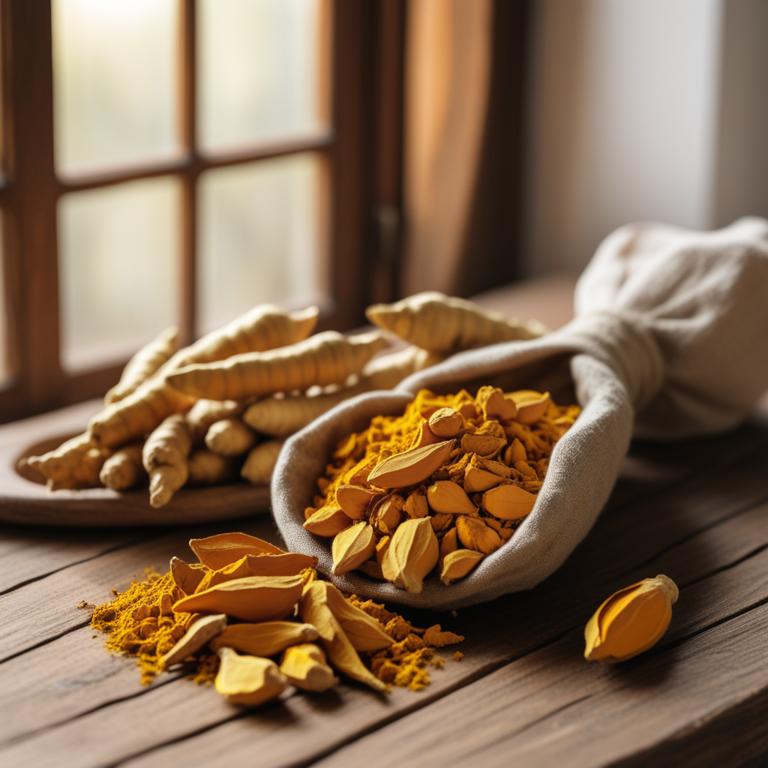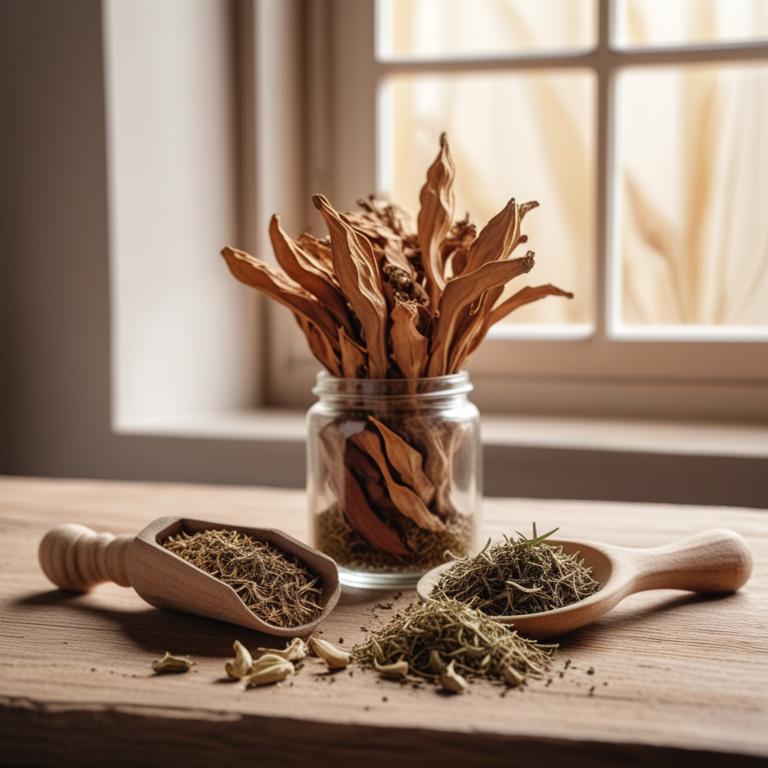Updated: Dec 1, 2024
Gum Infection Causes and Medicinal Herbs for Natural Relief
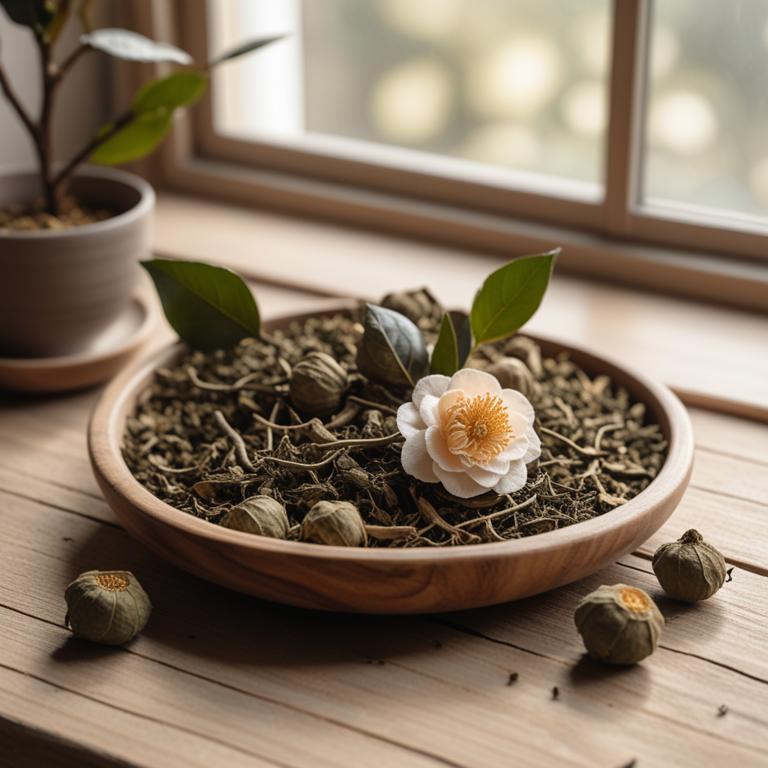
Gum infection, also known as periodontal disease, is a bacterial infection that causes inflammation and infection in the gums and jawbone.
If left untreated, it can lead to pain, bad breath, and even tooth loss. Gum infection can affect your daily life, making it difficult to eat, speak, and sleep comfortably. It's usually caused by poor oral hygiene, smoking, and a diet high in sugar and refined carbohydrates. Some people may be more susceptible to gum infection due to genetic factors or certain medical conditions. However, there are natural remedies that can help soothe and heal the infection.
Certain herbs, such as calendula, aloe vera, and echinacea, have anti-inflammatory and antimicrobial properties that can help reduce swelling and kill bacteria. These herbs can be prepared as teas, tinctures, or salves to be applied directly to the affected area. Calendula tea, for example, can be made by steeping dried calendula flowers in hot water. This tea can be used as a mouthwash to reduce inflammation and kill bacteria. Aloe vera gel can be applied directly to the gums to soothe and calm the area.
Echinacea tincture can be added to water and used as a mouthwash to boost the immune system and fight infection.
Table of Contents
- What are the underlying factors that lead to gum infection?
- What advantages can herbs offer in the treatment of gum infection?
- What are the primary medicinal herbs for treating gum infection?
- What are the most frequently used herbal preparations for gum infection?
- Are there any herbs you should not use if you have a gum infection?
- FAQ
What are the underlying factors that lead to gum infection?
The main causes of gum infection are linked to various factors that can lead to inflammation and damage in the gum tissue.
Poor Oral Hygiene is a significant contributor, as not brushing and flossing regularly allows bacteria to accumulate and cause infection. Gingivitis, an early stage of gum disease, occurs when plaque builds up on teeth and irritates the gums, causing redness, swelling, and bleeding.
If left untreated, Gingivitis can progress to Periodontitis, a more serious infection that destroys the tissue and bone supporting the teeth, leading to tooth loss. Smoking is also a major risk factor, as it reduces blood flow to the gums, making them more susceptible to infection and hindering the healing process.
Smoking also increases the production of bacteria in the mouth, further exacerbating the problem.
What advantages can herbs offer in the treatment of gum infection?
Using herbs to treat gum infection can be very beneficial.
One of the main advantages is that they are often gentler on the gums than antibiotics, which can be harsh on the body. These herbal remedies can help reduce swelling and pain in the gums, making it easier to eat and talk.
They also have antibacterial properties, which can help fight off the bacteria causing the infection. Additionally, herbs can help to reduce inflammation and promote healing in the gums, which can help prevent further problems. Some herbs can even help to reduce bad breath and freshen the mouth.
They can be used in various forms, such as teas, mouthwashes, or ointments, making it easy to incorporate them into your daily oral care routine.
What are the primary medicinal herbs for treating gum infection?

Gum infection can be painful and uncomfortable.
Some herbs can help alleviate symptoms and fight the infection. One of these herbs is Zingiber officinale, commonly known as ginger. It has anti-inflammatory properties that can reduce swelling and pain in the gums. Ginger also has antimicrobial properties that can help kill the bacteria causing the infection. This makes it a great addition to a treatment plan for gum infections. Another herb that can help is Salvia officinalis, or sage. It has antibacterial properties that can help combat the infection.
Sage also has anti-inflammatory properties that can reduce pain and swelling. Melaleuca alternifolia, or tea tree oil, is also beneficial for gum infections. It has antimicrobial and anti-inflammatory properties that can help kill bacteria and reduce pain and swelling. However, it's essential to use it in moderation as it can be harsh on the gums. Eucalyptus globulus, or eucalyptus, is another herb that can help. It has anti-inflammatory properties that can reduce pain and swelling. Eucalyptus also has antimicrobial properties that can help combat the infection. Echinacea purpurea, or coneflower, is often used to boost the immune system and fight off infections.
It can help the body fight off the bacteria causing the gum infection, making it easier to recover.
What are the most frequently used herbal preparations for gum infection?

Herbal preparations can be a great way to treat gum infections naturally.
A decoction is a strong tea made by boiling herbs in water. Plants like sage and myrrh have antibacterial properties that help kill the bacteria causing the infection. Decoctions can be applied directly to the affected area to reduce inflammation and promote healing. A tincture is a liquid extract of herbs that can be applied to the gums using a cotton swab. Tinctures of echinacea and goldenseal have antimicrobial properties that help fight off the infection. They can also help reduce swelling and pain. You can also drink herbal teas to help treat gum infections from the inside out.
Peppermint and chamomile teas have anti-inflammatory properties that can help soothe the gums and reduce pain. Drinking tea regularly can also help prevent future infections. If you prefer to take herbs in a capsule form, you can look for products that contain herbs like berberine and tea tree oil. These herbs have antibacterial and antifungal properties that can help fight off the infection and promote healing. A salve is a topical cream or ointment that can be applied directly to the affected area to help reduce inflammation and promote healing. Salves made with herbs like calendula and aloe vera can help soothe the gums and reduce pain. They can also help promote wound healing and reduce the risk of scarring.
When using herbal preparations to treat gum infections, it's essential to note that they may not be as effective as prescription medications, and you should always consult with a healthcare professional before starting any new treatment.
Additional Resources:
Are there any herbs you should not use if you have a gum infection?
If you have a gum infection, it's best to be cautious with certain herbs that might make things worse.
For example, Rosmarinus officinalis, also known as rosemary, has strong anti-inflammatory properties that can actually irritate your gums further. Thymus vulgaris, or thyme, has antibacterial properties, but its essential oils can be too harsh for inflamed gums and cause more pain.
Mentha x piperita, peppermint, is another herb to watch out for, as its strong menthol content can burn your gums and make them more sensitive. Hyptis suaveolens, or bush mint, is similar to peppermint, with a cooling effect that might seem soothing but can actually worsen gum inflammation. Foeniculum vulgare, or fennel, has a compound called anethole, which can cause your gums to swell even more and make the infection worse.
These herbs are usually used to help with digestion or as a breath freshener, but if you have a gum infection, it's best to avoid them until your infection clears up.
FAQ
Are there any specific herbs that can prevent gum infection?
Gum infections can be prevented by using certain herbs.
Cloves have antibacterial properties that can fight off germs causing gum problems. Echinacea and sage can also help reduce inflammation and promote healing.
These herbs can be used in the form of tea or mouthwash to keep your gums healthy and strong.
Is it safe to use herbal remedies for gum infection during pregnancy?
During pregnancy, it's best to be cautious with herbal remedies for gum infections.
Some herbs, like sage and parsley, may help reduce swelling, but others, like pennyroyal, can cause problems.
It's hard to know the right dose and if they'll mix well with other medicines you're taking.
Are there any herbs that can reduce the frequency of gum infection?
Gum infections can be caused by bacteria in the mouth.
Some herbs, like sage and cloves, have natural antibacterial properties that can help reduce the frequency of these infections.
These herbs may help prevent the growth of bacteria in the mouth, which can contribute to gum disease.
Can i combine different herbal remedies for gum infection?
You can combine different herbal remedies for gum infection, but use them in moderation.
For example, you can mix aloe vera to soothe the gums and eucalyptus oil to reduce pain. Cloves can be added to provide antibacterial properties.
However, the effectiveness may vary depending on the severity of the infection and individual tolerance.
Related Articles

The Causes and Herbal Treatments of High Blood Pressure
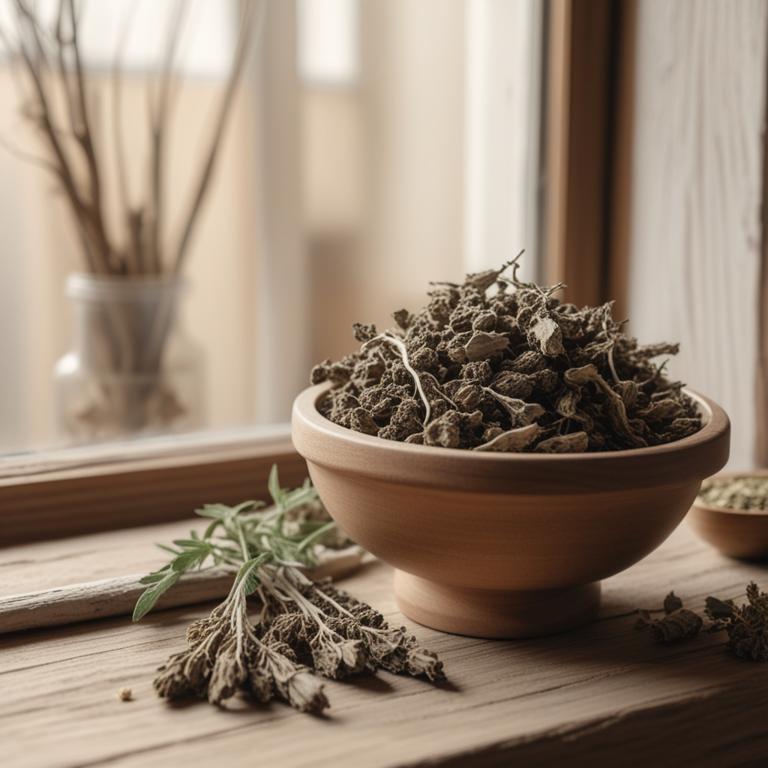
Peripheral Arterial Occlusive Disease: Natural Remedies and Herbal Preparations
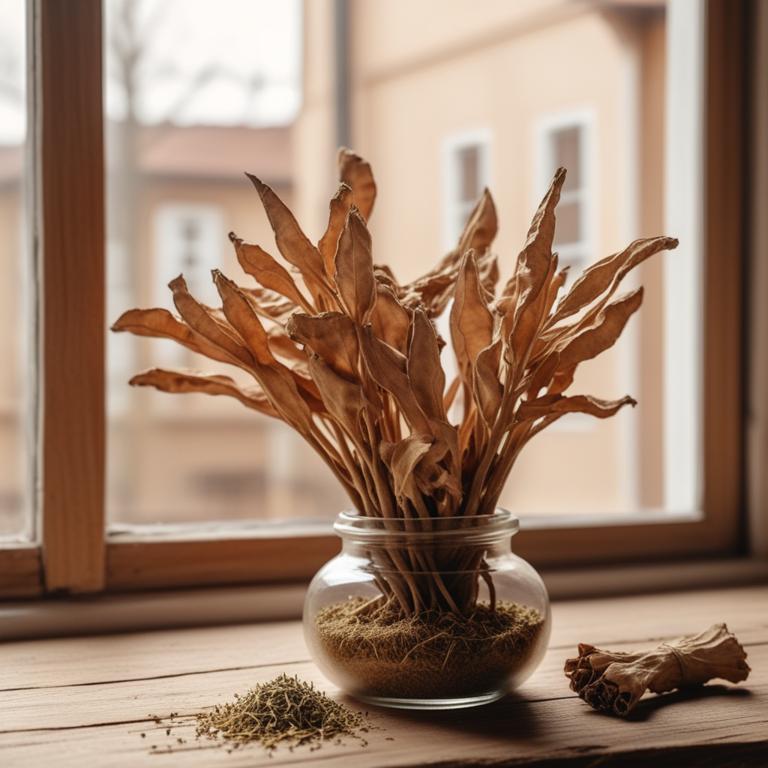
Angina and Herbal Medicine: Causes, Medicinal Herbs, and Preparations
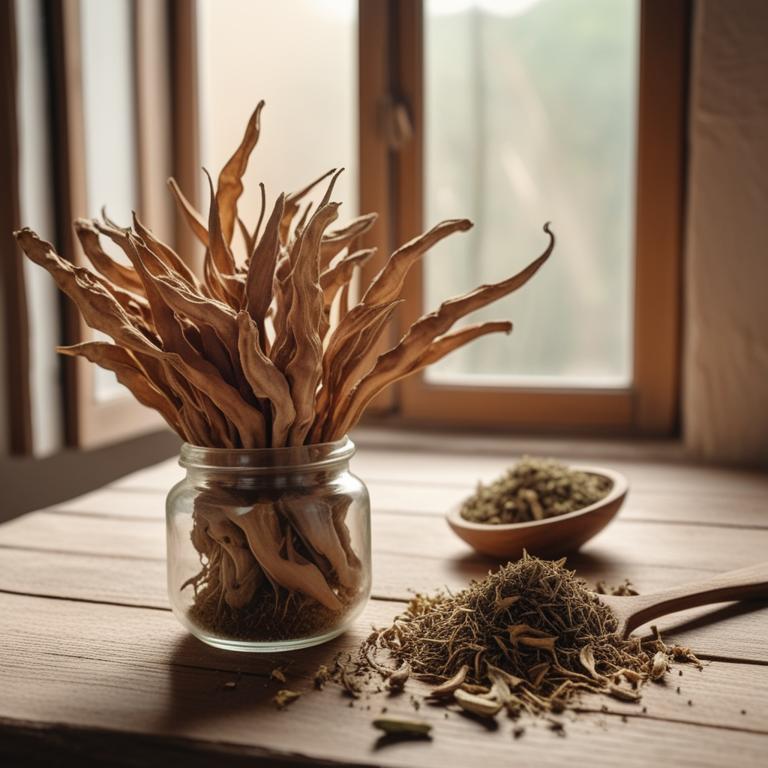
Gum Infection Causes and Medicinal Herbs for Natural Relief
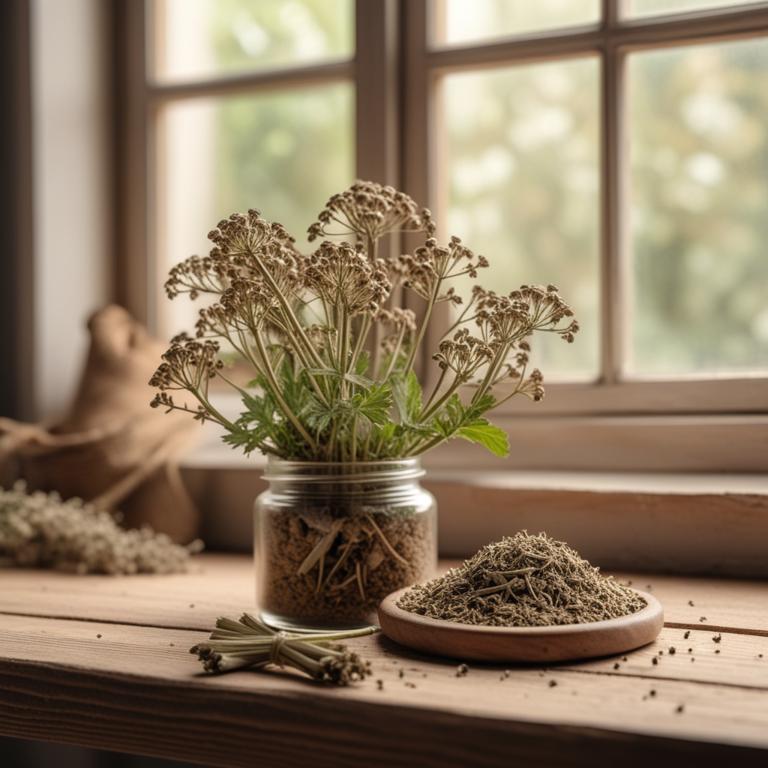
Palpitation: Understanding Its Causes and Natural Medicinal Herbs
